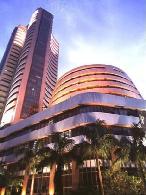 The growth of the capital goods or engineering sector is closely linked with the economic growth and capital expenditure in various industries. Due to this, Indian engineering companies have remained in the limelight in recent years, on the back of strong economic growth.
The growth of the capital goods or engineering sector is closely linked with the economic growth and capital expenditure in various industries. Due to this, Indian engineering companies have remained in the limelight in recent years, on the back of strong economic growth.
Huge expenditure undertaken by the government and the private sector helped many of these companies to benefit immensely.
Capital goods could prove to be a promising space over the next several years if economic growth remains robust. Here are some indicators investors could watch for before investing in such companies.
BUSINESS MODEL
An engineering company could be a pure product company or supplying equipments needed by user industry. But, many Indian companies also provide complete solution, called engineering-procurement-construction (EPC).
In EPC, companies not only supply equipments but also procure other components required for a project and construct or execute the project. Typically, a pure product company is likely to have low margins, due to high competition, whereas EPC accounts for higher margins due to integrated operations.
A mix of both gives these companies good margins and new business. Demand drivers Companies have diverse products and services for the demand of different industries. So, assess the demand in the user industry.
In a growing economy, capital goods companies grow faster on the back of high capital expenditure by user industry - oil and gas, steel, cement, power and infrastructure sectors.
The industry's capex cycle is important, which is influenced by interest rates and availability of credit from banks. High interest rates, low credit depresses new investments leading to slowdown in this sector.
ORDER BOOK
Most companies declare their order book quarterly and also give the break-up of the order book in terms of products. The order book is important, as it provides an idea about revenue visibility.
Depending on the demand and segment in which the company is operating, the order book could range between one to four times its revenue. Sometimes, companies operate in segments like heavy engineering, which usually require more time to execute orders.
Sometimes, the execution cycle is short in certain segments, like for large power equipment and projects, which require two to four years to execute, companies have a large order book. A sectoral, regional mix in the order book is also worth noting.
DIVERSIFICATION
A diversified product and services profile helps in mitigating the risk-related to slowdown in a particular segment or business. This helps in protecting revenue. Also, different segments provide different margins due to the competition and demand in them. Companies try to make a mix of products offering, high to low margins, to maintain good operating margins in the long run.
Geographical diversification is also important to avoid slowdown in any region. Last year, companies with high exposure to export markets, especially Europe, US and oil producing nations, suffered due to slowdown there.
Client diversification in terms of public and private sector could be useful in the event of less or higher investments by a particular type of client. In 2008-09, companies in the industrial segment depending on private sector clients were hurt, given the slowing in private sector expenditure.
Companies with high exposure to government projects posted good growth, given the continuous expenditure in government-led projects, particularly power and infrastructure sectors.
TECHNOLOGY
Companies with superior technologies have an edge and are able to garner more business. Technology and products keep on changing. Generally, companies fill this gap by spending on research and development, forming partnerships to get technology.
However, large players have an edge over smaller ones, here, given the balance sheet size, large scale of operations and good customer base.
Investors need to ask if the technology was received well by customers. Recently, Suzlon was in the news for some technical faults on some of its products exported to the US. The company had to take these back and write down losses in the books.
BHEL has a challenge in dealing with power utility companies importing equipments from China and Korea, where the technologies are considered to be less expensive, suitable for large capacities with less procurement time.
WORKING CAPITAL
Working capital is important, as companies have to manage large projects, which requires managing large sums of money. In case of government projects and projects with long execution period, companies have to manage debtors and creditors. Companies borrow from banks to meet short-term funds or working capital needs, which comes with additional cost.
Poor working capital management could lead to higher interest expense, depress net profit margins and returns on share holders' funds. Also, companies borrow huge amounts from banks or dilute earnings by way of raising additional equity to execute or for the projects. Investors should keep an eye on the debt-equity interest payment and equity dilution.
HOW TO VALUE
Companies are valued on the basis of the price to earnings (PE) ratio. Also look at the growth in profits. The order book and opportunities in the sector, along with margin knowledge, can help. Alternatively, the price to book value or enterprise value of the company compared to its earnings before interest, depreciation and tax is used.
During an upturn, these companies tend to trade on higher valuations. But investors be careful and look at the historical valuations, to check how the company traded in various ups and downs in the industry.






